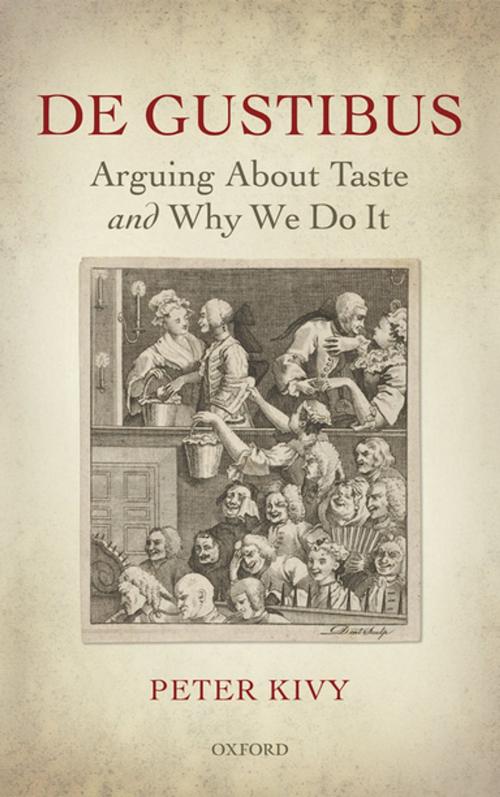De Gustibus
Arguing About Taste and Why We Do It
Nonfiction, Religion & Spirituality, Philosophy, Aesthetics, Art & Architecture, General Art| Author: | Peter Kivy | ISBN: | 9780191063756 |
| Publisher: | OUP Oxford | Publication: | October 22, 2015 |
| Imprint: | OUP Oxford | Language: | English |
| Author: | Peter Kivy |
| ISBN: | 9780191063756 |
| Publisher: | OUP Oxford |
| Publication: | October 22, 2015 |
| Imprint: | OUP Oxford |
| Language: | English |
In De Gustibus Peter Kivy deals with a question that has never been fully addressed by philosophers of art: why do we argue about art? We argue about the 'facts' of the world either to influence people's behaviour or simply to get them to see what we take to be the truth about the world. We argue over ethical matters, if we are ethical 'realists,' because we think we are arguing about 'facts' in the world. And we argue about ethics, if we are 'emotivists,' or are now what are called 'expressionists,' which is to say, people who think matters of ethics are simply matters of 'attitude,' to influence the behaviour of others. But why should we argue about works of art? There are no 'actions' we wish to motivate. Whether I think Bach is greater than Beethoven and you think the opposite, why should it matter to either of us to convince the other? This is a question that philosophers have never faced. Kivy claims here that we argue over taste because we think, mistakenly or not, that we are arguing over matters of fact.
In De Gustibus Peter Kivy deals with a question that has never been fully addressed by philosophers of art: why do we argue about art? We argue about the 'facts' of the world either to influence people's behaviour or simply to get them to see what we take to be the truth about the world. We argue over ethical matters, if we are ethical 'realists,' because we think we are arguing about 'facts' in the world. And we argue about ethics, if we are 'emotivists,' or are now what are called 'expressionists,' which is to say, people who think matters of ethics are simply matters of 'attitude,' to influence the behaviour of others. But why should we argue about works of art? There are no 'actions' we wish to motivate. Whether I think Bach is greater than Beethoven and you think the opposite, why should it matter to either of us to convince the other? This is a question that philosophers have never faced. Kivy claims here that we argue over taste because we think, mistakenly or not, that we are arguing over matters of fact.















